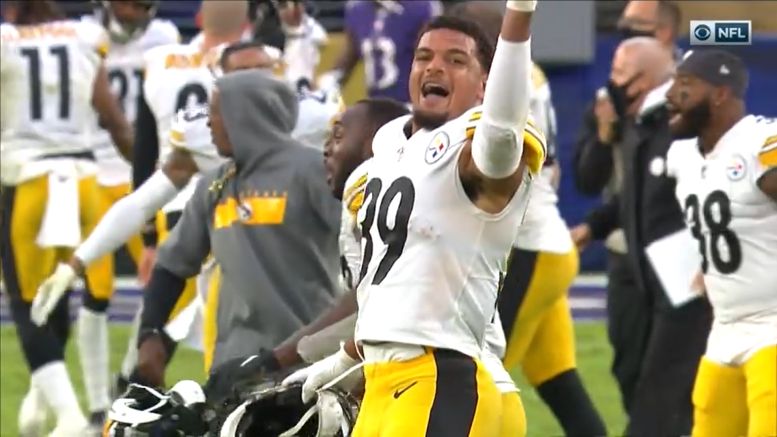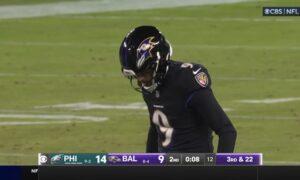While players will now be required to play one extra regular season game from now on, and it will take time for new contracts signed to reflect the impact of playing 1/16th more games than they were previously expected to play, there are some players who will, in fact, earn an extra game check.
It was, in fact, written into the Collective Bargaining Agreement signed and ratified around this time a year ago. But it does limit those who qualify, starting with anybody who is making a league-minimum salary. Another major restriction is that it doesn’t apply to anybody who signed a deal after February 25, 2020, and anybody who restructured their contract in any way that altars compensation levels after that date
Article 26, Section 1, sub-section (c) provides for the establishment of an Additional Game Check to be paid to qualifying players (who obviously must be on the roster for equivalent for the entire season) in one lump sum, equal to 1/17th of their base salary, after the season is over. It’s incredibly dense and convoluted, and I hesitated to even include the official language of the document, but here it is for anybody brave enough to parse through it.
Beginning in the 2021 League Year, for the duration of this Agreement only, in any League Year in which seventeen regular season games are played, any player whose NFL Player Contract specifies a Paragraph 5 Salary that exceeds the Minimum Salary for a player on the Club’s Active/Inactive List with such player’s own number of Credited Seasons, as defined in Section 2 of this Article, shall be eligible to receive an Additional Game Check subject to the following terms and conditions: (i) the player’s contract that specified Paragraph 5 Salary in the 2021 League Year or any subsequent League Year that exceeded the Minimum Salary for a player on the Club’s Active/Inactive List with such player’s own number of Credited Seasons was executed prior to February 26, 2020 (“First Contract”); (ii) the First Contract was not renegotiated and/or extended after such date, unless the renegotiation (and any subsequent renegotiation) was for the sole purpose of (1) converting any portion of a player’s Paragraph 5 Salary and/or Roster Bonus amounts set forth in the player’s NFL Player Contract into Signing Bonus (“Conversion”), provided that (A) the original term of the First Contract is not augmented, reduced and/or extended in any way (including, but not limited to, by means of new void and/or option provisions), unless the augmentation is the result of a provision stating that a specified contract year or years shall void automatically upon a specified day or date or upon the achievement of a roster condition with no additional contingencies (“Automatic Voidable Year”), and, upon achievement of such void provision, the original term of the First Contract remains unchanged; (B) the applicable Paragraph 5 Salary and/or Roster Bonus amounts are reduced on a dollar-for-dollar basis by an amount equal to the resulting Signing Bonus; (C) all other compensation terms remain unchanged; and (D) no Salary guarantees were added to the renegotiated contract (except for the portion of the player’s Paragraph 5 Salary and/or Roster Bonus that was converted into Signing Bonus); and/or (2) adding non-compensation provision(s) to the NFL Player Contract that did not affect the original term and/or total compensation provided for in the First Contract (e.g., insurance clause), provided that no Salary guarantees were added to the renegotiated contract; (iii) the player was on the Club’s Active/Inactive List or Reserve/Injured List for the seventeenth game of that season, or the Club terminates the player’s contract prior to the seventeenth game of that season and (1) the player is eligible to claim Termination Pay under that contract; or (2) the player’s Paragraph 5 Salary in that League Year was guaranteed in whole (i.e., a guarantee that is applicable to all 18 weeks of the regular season during a season in which 17 regular season games are played) and he was terminated for a reason covered by the terms of that guarantee. A qualifying player shall receive an amount equal to one-seventeenth of his stated Paragraph 5 Salary for such League Year under the First Contract, which amount shall be paid to the player in lump sum at the conclusion of the regular season; provided, however, that in the event the Club terminates the player’s contract prior to the seventeenth game of the season and the player is eligible to claim Termination Pay under that contract, or the player’s Paragraph 5 Salary was guaranteed in whole, the full amount of player’s Additional Game Check shall be included in any claim for Termination Pay under that contract or in addition to the amount of the Paragraph 5 Salary guarantee. In the 2021 League Year, the first $48 million of the League-wide cost of the Additional Game Check shall be funded by the Performance-Based Pool for the 2021 League Year, as provided in Article 28, with a corresponding reduction in the total amount of the Pool for that League Year. In the 2021 League Year, if the $48 million taken from the Performance-Based Pool is insufficient to fund the League-wide Cost of the Additional Game Check, the shortfall shall be funded by the 2021 Rookie Redistribution Fund, as provided in Article 7, Section 9, up to the total amount of the Fund for that League Year (i.e., up to $64 million). If the combined amount taken from the 2021 Performance-Based Pool and the 2021 Rookie Redistribution Fund (i.e., $112 million) is insufficient to fund the League-wide cost of the Additional Game Check, the shortfall shall be funded as a new Player Benefit that will be treated in the same manner as any other Player Benefit Cost. In the 2022-30 League Years, the League-wide Cost of the Additional Game Check shall be funded by the Rookie Redistribution Fund for the applicable League Year. If the Rookie Redistribution Fund for the applicable League Year is insufficient to fund the total cost of the Additional Game Check in that League Year, the shortfall shall be funded as a new Player Benefit that will be treated in the same manner as any other Player Benefit Cost.
The vast majority of this is legal jargon that doesn’t really address the bottom line, but there are two things to mention here, starting with much of the bit at the end, which states that these additional game checks will be funded by draining the Performance-Based Pool, which rewarded underpaid players with additional salary for playing time, and the Rookie Redistribution Fund. So basically, it sounds like they’re taking money away from players who get additional pay corresponding to their contributions.
So the real question is, after all of this jumble of lawyer speak, who would be eligible for an extra game check, and who wouldn’t? Joe Haden, for example, would be eligible, because he signed his last extension before February 26, 2020, and hasn’t had his contract altered in a way that violates the conditions. Cameron Heyward, on the other hand, wouldn’t. His extension was signed after that date.
Ben Roethlisberger—how about him? The void years, because they have a fixed end date, are not relevant; however, it my reading is correct, I believe his pay cut would be, which would disqualify him. Minkah Fitzpatrick? He’s on a rookie deal, but making more than the minimum. He should qualify for an extra game check as well. David DeCastro, too, will be seeing an extra check. The only players who received standard restructures (with or without void years) this offseason were players whose deals were signed after the qualifying date (Derek Watt, Eric Ebron, and Cameron Heyward), but anybody who had an earlier contract to did a standard restructure would have been eligible as well. Hopefully these examples help a bit in fleshing out how this is intended to work.








